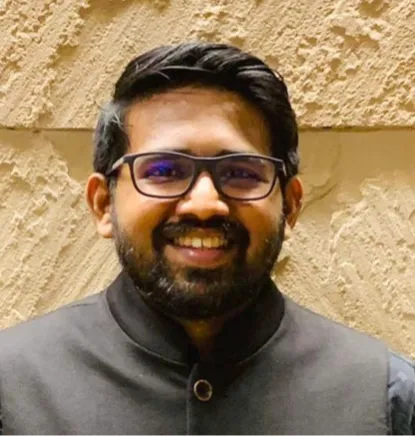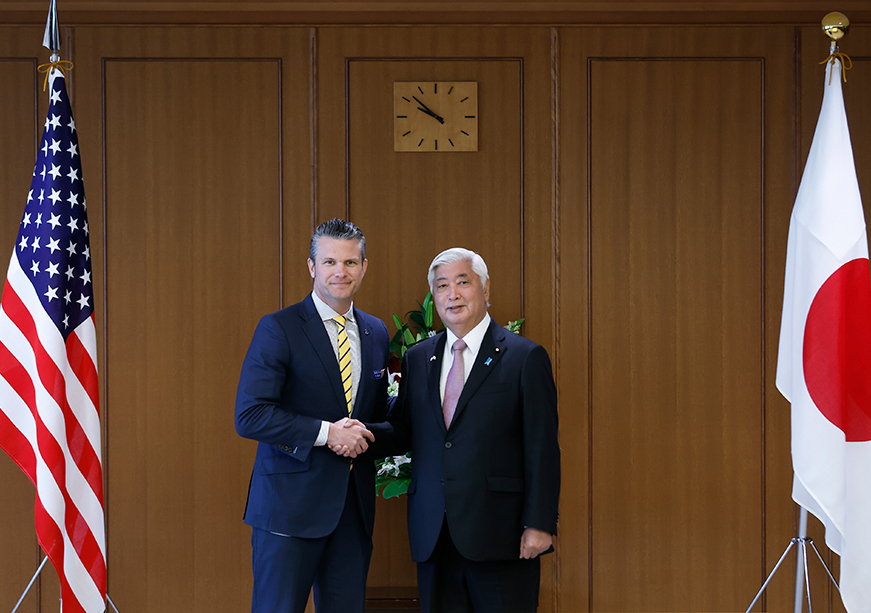
Amidst the political catastrophe in Pakistan and speculations of early elections in India, elections in South Asia are garnering attention across the world. The upcoming four months will be crucial for the South Asian region, with three countries heading towards elections and shaping their future for the next five years. The Maldives will go into Presidential election on September 9th; Bhutan’s assembly dissolves on October 31st, making way for the 4th general elections; and Bangladesh will hold elections in January 2024. Despite some limitations and fallacies, democracy has stood its ground in these countries. Most importantly, with COVID-19 exposing the vulnerabilities and weaknesses of these countries, the incoming governments will have to confront a wide variety of internal challenges and build on external partnerships to address their concerns and further their interests.
Owing to the democratic space and political opportunities, the leadership and dynamics of the political parties have also consistently changed in the country.
The fate of democracies
The Maldives has had three Presidential elections since its democratic transition in 2008, and each election has seen a new President. Despite some episodes of political instability, the country’s democracy continues to be resilient with the holding of regular elections. Owing to the democratic space and political opportunities, the leadership and dynamics of the political parties have also consistently changed in the country. For instance, for this election, the Maldives National Party (MNP) has split from the Jumhooree Party (JP), the Democrats have splintered from the Maldivian Democratic Party (MDP), and the Progressive Alliance has chosen new leadership by challenging the authority and decision of their incumbent leader, Abdulla Yameen. Incidentally, for the first time in its history, eight candidates (each from the above-mentioned parties and three independent candidates) will be competing for the Presidential primaries. Results from these primaries will go on to shape the coalitions and alliances for the potential second round of presidential elections and the 2024 parliamentary elections, thereby determining the efficiency and effectiveness of the new administration.
Starting with its transition from an absolute to constitutional monarchy in 2008, Bhutan has held three elections, and each has seen a new ruling party and Prime Minister. Unlike other South Asian countries, elections in Bhutan have been frequent, free of violence, and disciplined. Despite some criticism of Bhutan’s electoral system being unfair to new parties, political parties in the country are formed and dissolved upon convenience, and their leaderships have periodically changed without consideration of dynasties and families. In the upcoming elections, five parties will contest in the primary round. Two new parties (Bhutan Tendrel Party and Druk Thuendrel Tshogpa) will be competing against the three parties that have subsequently governed Bhutan from 2008, i.e., the Druk Phuensum Tshogpa, People’s Democratic Party, and the incumbent ruling party, Druk Nyamrup Tshogpa. Out of these five, only the top two parties with the most votes will head to secondary elections and will subsequently form the ruling and opposition parties.
Starting with its transition from an absolute to constitutional monarchy in 2008, Bhutan has held three elections, and each has seen a new ruling party and Prime Minister.
In Bangladesh, despite accusations of incumbent Awami League rigging elections, imprisoning opposition leaders, and indulging in electoral violence, elections have been held regularly in the country. Today, the country’s polity is dominated by the ruling Awami League and its arch-rival, the Bangladesh Nationalist Party (BNP). This is despite the BNP’s decline in political capital with its boycott of elections in 2014 and fewer seats in the 2018 elections. However, the future of electoral competition remains uncertain in the country. Even as Sheikh Hasina is attempting to boost her democratic credentials and legitimacy by encouraging opposition leaders to participate in the election, the BNP is using election boycotts to seek concessions from the government while the fundamentalist Jamaat-E-Islami party is finding ways to participate in the elections.
Fewer cakes, more challenges
Despite this increasing democratic competition, the next five years would be no cakewalk for the incoming governments. The South Asian economies continue to be severely distressed by COVID-19 and Russia’s Ukraine war. With food and fuel inflation, the import-dependent Maldives, Bhutan, and Bangladesh are continuing to witness depleting foreign reserves. Decreased revenues due to COVID-19 and subsequent increases in debt borrowings are drying up foreign reserves even more swiftly. For instance, the Maldives has usable reserves of a mere US$500 million; in Bhutan, the forex reserves are sufficient for only 14 months of essential imports; and reserves in Bangladesh have reached a seven-year low. For the incoming governments, there is thus a need to diversify sources of revenue and foreign reserves. Today, the Maldives largely depends on tourism for its foreign reserves, Bhutan concentrates on tourism and hydropower, and Bangladesh predominantly depends on garment exports.
With food and fuel inflation, the import-dependent Maldives, Bhutan, and Bangladesh are continuing to witness depleting foreign reserves.
Besides, South Asian countries should also promote broader structural changes to restart their economies. In the Maldives, there is a need to address budget deficits and unnecessary expenditures, and sustain growth by reducing borrowing. In Bhutan, there is an urgency to restart the economy, resurrect the tourism sector, strengthen the private sector, increase foreign investments, promote bureaucratic reforms, and generate employment opportunities. These economic reforms will be crucial for Bhutan to further limit mass-migration of the youth. Finally, Bangladesh will also have to focus on creating employment opportunities, promoting good governance, diversifying exports and energy sources, and promoting reforms in the banking and financial sectors.
New compulsions and partnerships
These challenges will also shape the incoming governments’ external partnerships, and their ability to further their interests. In the Maldives, the mainstream parties will avoid antagonising India and China, considering the countries’ economic and political clout. Today, despite concerns of a budget deficit, debts, and unnecessary expenditures, candidates in the Maldives have promised salary hikes, subsidies and infrastructure projects, indicating that, in the future, the Maldives will continue to rely on external assistance—mostly from India or China. Essentially, if the MDP or the Democrats come to power, it is likely that they will continue advocating for a closer relationship with India. This is due to their close political relations, history of trust, and India’s investments in the Maldives’ socio-economic development sector. Similarly, with Yameen out of the presidential race, the pro-Chinese Progressive Alliance has curbed its anti-India rhetoric. This indicates that, despite their advocacy for good relations with China, the party is recalibrating its approach towards India and is hesitant to alienate the latter. Finally, independent candidates and relatively smaller parties have varied in their responses towards Maldives’ foreign policy—some have expressed neutrality while others have continued to muster nationalist sentiments by politicising Maldives’ defense cooperation with India. Nonetheless, these policies will be subject to more push and pull based on the future alliances and coalitions.
If the MDP or the Democrats come to power, it is likely that they will continue advocating for a closer relationship with India.
On the other hand, in Bhutan, the king continues to be the “guiding force” of the country’s foreign policy and defence and security needs. As a result, the landlocked country is likely to see continuity regardless of the election results. For Bhutanese leadership, the relationship with India is non-negotiable, and relations with China are strategic. The latter is for two reasons—to solve border disputes with China, and reap economic benefits from it. Subsequent Bhutanese governments have thus prioritised economic integration with India, respected New Delhi’s interests and concerns, and attempted to solve border disputes with China without picking sides and antagonising the latter. The Galwan clashes in 2020 and the increasing India-China competition have, however, pushed Bhutan to end its disputes at the earliest. Essentially, the incumbent government has signed a Memorandum of Understanding with China, held four Expert Group Meetings, and initiated a technical team meeting to demarcate the borders. Even in the future, the incoming government will continue this policy by not picking sides, ceding certain territories, negotiating the Doklam junction trilaterally, economically integrating with India, and exploring further relations with China.
In Bangladesh, if the Awami League comes to power, it will continue promoting good relations with China, India, and Russia, albeit respecting New Delhi’s concerns. However, its relations with the West and the United States (US) will be shaped by the nature of elections rather than the results themselves. The US is using sanctions and visa policies to pressure the government to conduct free and fair elections, and Dhaka’s failing to do so will likely invite more offensive action from the West. However, fair elections resulting in Hasina’s victory might even promote Bangladesh’s robust engagement with the US and the rest of the West. On the other hand, the opposition—BNP and Jamaat—have close relations with China and Pakistan and might tilt towards them should they have an electoral victory. Unsurprisingly, there is a perception in Delhi that this change in government might come at a cost for India. However, this might not be the only possibility. The BNP will also likely hesitate to alienate and antagonise India, given China’s increasing assertiveness, Pakistan’s economic and political catastrophe, and amplifying tensions with Myanmar. As Bangladesh focuses on economic growth, its only stable neighbour, India, will be crucial to fuel its transition, promote bilateral and inter-regional connectivity, and ensure win-win cooperation.
The BNP will also likely hesitate to alienate and antagonise India, given China’s increasing assertiveness, Pakistan’s economic and political catastrophe, and amplifying tensions with Myanmar.
With COVID-19 exacerbating vulnerabilities of the countries, and increasing geopolitical competition in the region, South Asian nations are being compelled to reconsider their thinking and conduct. As the Maldives, Bhutan, and Bangladesh head toward elections, they continue to commit to democracy, intend to overcome their vulnerabilities, and are attempting to maintain flexible partnerships. This is a trend worth observing as other South Asian countries, like Pakistan, India, and Sri Lanka, head to elections in 2024.
The views expressed above belong to the author(s). ORF research and analyses now available on Telegram! Click here to access our curated content — blogs, longforms and interviews.




 PREV
PREV


